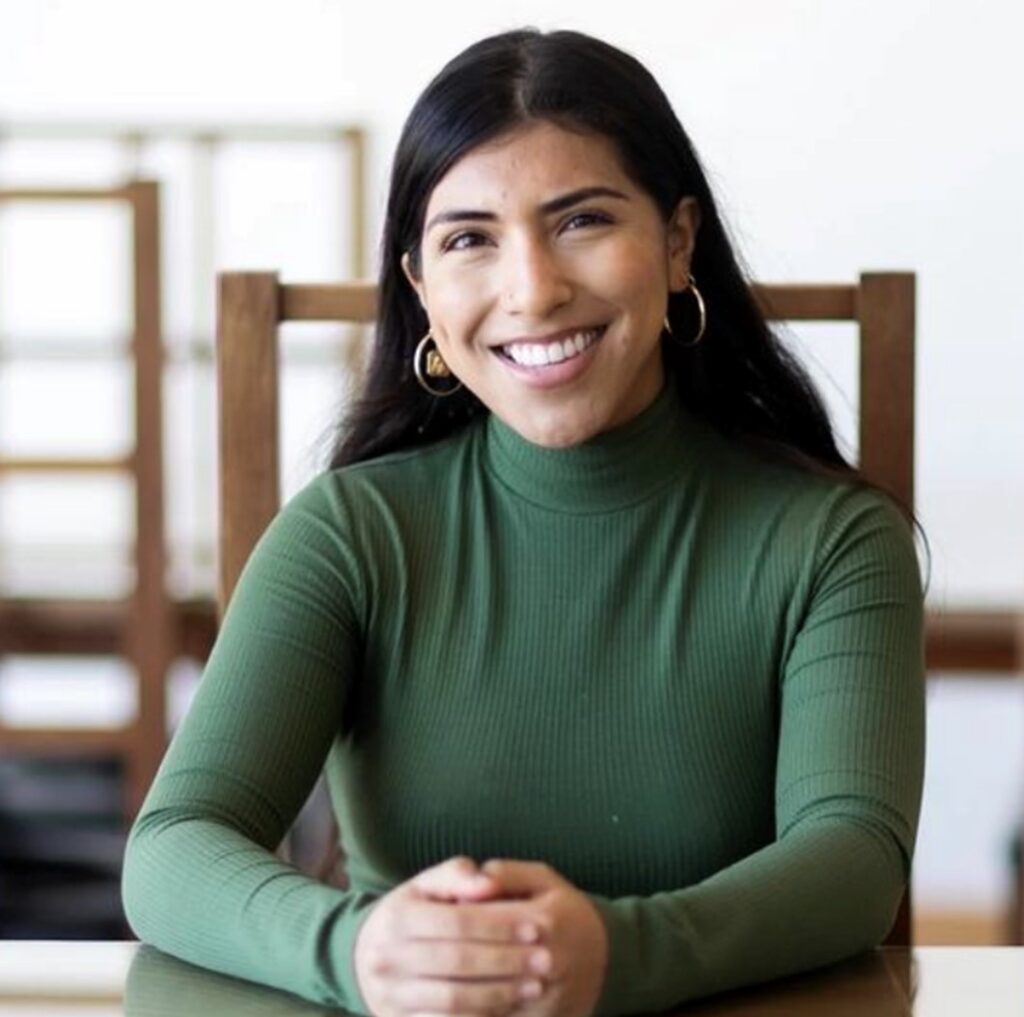IHP alumna receives prestigious Watson fellowship
April 25th, 2023 | SIT Study Abroad
This post is excerpted from an article published by The Bates Student by staff writer Trinity Pontoon, and a separate article in Bates News. The material is reprinted here with permission.

Bates College senior Adilene Sandoval is among 42 seniors nationally, and one of two SIT study abroad alumni*, who received grants as part of the 55th class of the Thomas J. Watson Fellowship, a prestigious one-year grant for "purposeful, independent exploration outside the United States, awarded to graduating seniors,” according to the fellowship’s website. Winners receive $40,000 to pursue and realize their original project during the year following their graduation.
Sandoval, a sociology and environmental studies double major, will embark on a journey through Australia, Italy, Ethiopia, El Salvador, Colombia, and Guatemala to complete her research project, “Weaving Together Activism and Healing.” Her project will explore different trauma healing models and anti-colonial, justice-informed healing models through interviews and volunteer work.
She hopes to “[bring] together activism and healing to foster psychological well-being, a decolonial social consciousness, active resistance and progressive social justice in the communities affected by institutional violence, repression and social injustices.”
According to Sandoval in an email interview, her project’s inspiration “came from wanting to create alternative realities—that center healing—for the inequalities I have witnessed my entire life.”
It was a sacred cycle nurtured through generations of land stewards who passed down their teachings to my father, who then passed them on to me.
After her semester abroad, traveling through Ecuador, Spain and South Africa with School for International Training, where she learned about the intersection of sustainability, agriculture, and social justice, Sandoval found herself “heartbroken, having a really hard time processing the immense theme of inequalities that persisted across all three countries, specifically affecting BIPOC communities.”
At age 8, Sandoval and her family left the mountains of Michoacán, Mexico, and moved to the U.S. in search of a better life. In Mexico, she recalls, life revolved around her family and the land, whether she was helping her father fish for river crabs—chacales—or growing roses and medicinal herbs with her mother. “It was a sacred cycle nurtured through generations of land stewards who passed down their teachings to my father, who then passed them on to me,” she says.
Settling in Washington state, Sandoval and her family worked in industrial agriculture, harvesting apples, cherries, asparagus, and peaches. The symbiotic conversation between Sandoval and the earth was muted. “People were not seen as stewards of the land but rather as a labor force.” That dynamic “leaves you mentally, physically, and emotionally depleted and disconnected.”
After graduating from high school, Sandoval headed to Bates, deeply mindful of her family’s and home community’s resilience. In addition to her studies, she is an active member of Raices Unidas, a digital marketing assistant for the Center for Purposeful Work, and a student ambassador for first-generation students through the college’s Bobcat First program.
Last summer, Sandoval received an Otis Fellowship to study land stewardship, agriculture, and migration in Oaxaca, Mexico. She recalls watching a group of women there work on tapestries using earth-tone threads, dyed using plants and stones. Those fine threads helped weave together a picture for her of “ecological and social well-being,” where “repair of ecosystem services contributed to cultural revitalization, and renewal of culture promoted the restoration of social and environmental well-being.”
I will be able to explore the spectrum in which justice-oriented healing is occurring and how that could be implemented in our communities, institutions, and systems.
Sandoval heard about the Watson fellowship in her first year at Bates. “I remember telling my freshman self to apply when the time came around,” says Sandoval. The fellowship’s holistic approach to experiential learning and its commitment to funding individuals instead of projects drew her to the program. “They really focus on projects that are an extension of the self,” according to Sandoval.
Though the fellowship does not require the completion of a finished end product, Sandoval will be creating a film collection with her research. In addition, her research will inform the approach she takes into a PhD program upon her return to the U.S. “I want my research to represent the broad range of healing practices that exist and not limit itself to western-based practices.”
During her Watson year, Sandoval will seek to deepen and extend her understanding of the concept of community healing that she’d seen in Oaxaca, by volunteering and speaking with community members, organizers, healers, academics, writers, and psychologists in six countries.
“I will be able to explore the spectrum in which justice-oriented healing is occurring and how that could be implemented in our communities, institutions, and systems,” she says.
Sandoval will seek ideas across six countries and five continents, from sovereignty and intergenerational healing within Aboriginal peoples of Australia to the role of community cultural wealth in facilitating healing from displacement in Black immigrant communities in Italy.
Sandoval will depart for her Watson year by August 1 and will return in August of 2024. After her Watson year, Sandoval plans to pursue a PhD in counseling psychology and begin a career in action-oriented research and counseling.
*Maddison Schink of Colorado College also received a Thomas J. Watson Fellowship grant. Schink attended SIT Peru: Indigenous Peoples and Globalization in spring 2022.
